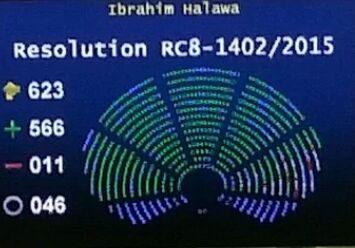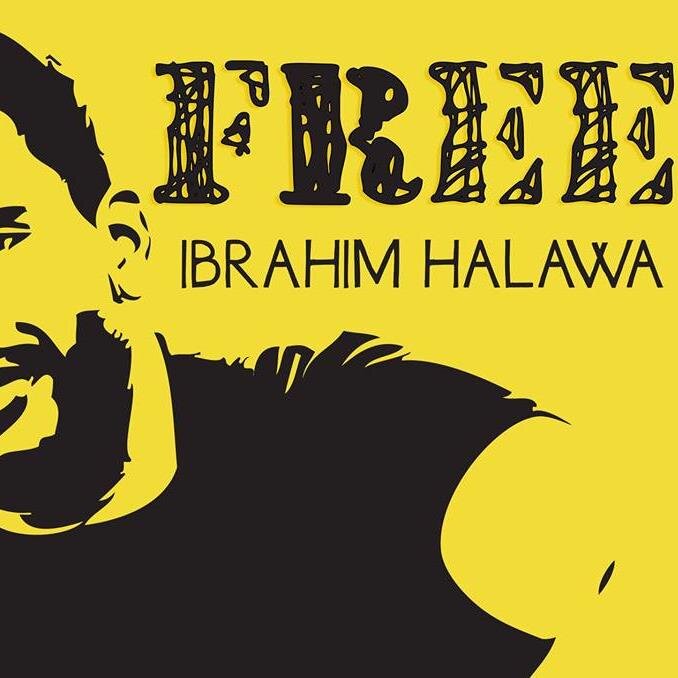EUROPEAN PARLIAMENT CALLS UPON EGYPT TO IMMEDIATELY RELEASE IRISHMAN IBRAHIM HALAWA
 Ibrahim Halawa’s legal team – solicitor Darragh Mackin and his colleague Gavin Booth of KRW LAW LLP, Belfast and barristers Caoilfhionn Gallagher, Katie O’Byrne and Mark Wassouf of Doughty Street Chambers, London – welcome the European Parliament’s call for the immediate release of Ibrahim Halawa.
Ibrahim Halawa’s legal team – solicitor Darragh Mackin and his colleague Gavin Booth of KRW LAW LLP, Belfast and barristers Caoilfhionn Gallagher, Katie O’Byrne and Mark Wassouf of Doughty Street Chambers, London – welcome the European Parliament’s call for the immediate release of Ibrahim Halawa.
Ibrahim is a 20 year old Irish citizen who has been detained without trial in Egypt for two and a half years.
The Resolution states that the European Parliament:
“Expresses its deep concern about the unacceptable breach of basic human rights arising from the arbitrary detention of Irish citizen Ibrahim Halawa, and calls on the Egyptian authorities to immediately and unconditionally release him to the Irish authorities pursuant to a presidential decree issued in November 2014 under Egyptian Law 140 and Expresses its deepest concern at the deteriorating condition of Ibrahim Halawa due to his hunger strike and his alleged poor conditions in prison; calls on the Egyptian authorities to ensure, as a matter of priority, that the good health and well-being of Ibrahim Halawa are maintained while he remains in prison; demands that all allegations of torture and maltreatment of Ibrahim Halawa be thoroughly and independently investigated”
The full text of the Resolution is available here
Ibrahim’s legal team have previously raised serious concerns about violations of his rights in the 28 months he has spent in custody in Egypt, which they say constitute multiple breaches by Egypt of its international legal obligations. Among other things, Ibrahim has endured arbitrary detention, torture and inhumane treatment, and, having been denied access to his lawyers, he is now awaiting a mass trial, involving 494 defendants which breaches the most basic judicial standards of fairness. His trial date has been repeatedly postponed and is now rescheduled for this Saturday, 19 December 2015. If he is convicted, Ibrahim is at risk of receiving a life sentence or even of being sentenced to death.
Darragh Mackin of KRW Law, solicitor to Ibrahim Halawa, said:
“Ibrahim’s continued detention in Egypt is a matter of grave concern. We are delighted that the European Parliament has recognised this and has called upon Egypt to send Ibrahim home to Ireland. The Resolution signifies the context of Ibrahim’s detention against the wider backdrop of human rights abuses in Egypt, and the continuing failure to uphold the very basic human rights enshrined in international law.”
Caoilfhionn Gallagher of Doughty Street Chambers, counsel to Ibrahim Halawa, said:
“The international community must keep a spotlight on the Egyptian authorities, who appear determined to jail, prosecute and convict any individuals who it perceives to be critical of the regime. This includes many innocent journalists and peaceful protestors. Ibrahim was a child in the wrong place at the wrong time, and as a result he has been in detention without trial for over two years, held in appalling conditions. Earlier this year he went on hunger strike in a desperate attempt to campaign for his freedom from torture and inhuman and degrading treatment. He now faces an impending mass trial, along with 493 others, which is overwhelmingly likely to be unfair, in conditions which make a mockery of justice. Egypt continues to act with flagrant disregard for its obligations under international law.”
Background
On 17 August 2013 Ibrahim (then aged 17) was arrested along with hundreds of others who had sought refuge in a Cairo mosque from violent clashes between the security forces and protestors. He has been charged with serious offences, all of which he strongly denies. These include at least three which carry the death penalty, and one which carries a life sentence. No evidence has been presented by the prosecution for any of these charges. Instead, the case file, which the legal team has reviewed in full, heavily relies on statements of a vague and general nature (none of which name Ibrahim specifically) from police witnesses regarding the actions of all 494 defendants.
Since his arrest, Ibrahim has endured horrific and sustained violations of his rights:
- Ibrahim has been detained for an unreasonably long period without any justification or proper review, as required under international law;
- he has not been tried within a reasonable time;
- he has been denied proper access to legal representation;
- he is likely to be tried in absentia, without proper examination of his case and in breach of the presumption of innocence;
- he was shot in the hand during his arrest and was denied medical treatment by the Egyptian authorities, leaving his hand permanently disfigured;
- he has been repeatedly abused by prison officers, including being whipped on his back with metal chains, repeatedly hit in the face and subjected to a humiliating strip search in front of armed guards;
- the conditions in which Ibrahim is held include poor sanitation, periods in solitary confinement, overcrowding and prisoners being served food containing worms and cockroaches; and
- Ibrahim is possibly facing the death penalty despite the clear and absolute bar upon this under international law for any offence committed by a child, no matter how serious.
END: 17 12 2015
Notes for Editors:
- Any queries should be directed to the family’s solicitor, Darragh Mackin, KRW LAW LLP, at darragh@kevinrwinters.com.
- Ibrahim Halawa has no access to a lawyer. His legal team on Irish and international law was appointed on his behalf, by his family. Egyptian lawyers act for him before the Egyptian courts, but they have also been unable to see him or to take instructions from him.
- Ibrahim was arrested on 17 August 2013, when he and others were taking refuge in the al-Fateh Mosque in Cairo. His legal team have seen no evidence of him being involved in any violence. International observers, including from Human Rights Watch and Amnesty International, who were present on 17 August have described unprovoked and unjustified violence towards those in the mosque by Egyptian security forces. Over 16 and 17 August it is understood that at least 97 people died in operations by the police and armed forces intended to clear protestors, although estimates from Human Rights Watch put the number at minimum 120, using official data from the Egyptian Forensic Medical Authority.
- Between 5 July and 17 August 2013, over 1,150 protestors were killed by police and army forces. A detailed one-year investigation by Human Rights Watch has concluded that the conduct of the Egyptian security forces in responding to the demonstrations involved the systemic and intentional use of excessive and lethal force in their policing, resulting in the killing of unarmed, peaceful protestors on an unprecedented scale: All According to Plan: The Rab’a Massacre and Mass Killings of Protestors in Egypt (August 2014), available at
http://www.hrw.org/sites/default/files/reports/egypt0814web_0.pdf
In January 2015 the United Nations High Commissioner for Human Rights, Prince Zeid Ra’ad Al Hussein, urged for an end to the excessive use of force by Egyptian security personnel, accountability for the Egyptian security forces, and he called for the release of all those detained for protesting peacefully: Statement available at
http://www.un.org/apps/news/story.asp?NewsID=49919#.VZFRZLnbJ9A.
- Egyptian Law 140 of 2014 allows the President to transfer foreigners who are accused or convicted in Egypt to their country of origin to face appropriate legal processes there. Law 140 was used to deport Peter Greste, an AlJazeera journalist arrested in December 2013 and charged with dissemination of false news, to his home country of Australia earlier this year. At the time of his deportation Mr Greste remained subject to unfinished criminal proceedings in Egypt.



